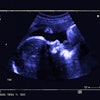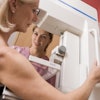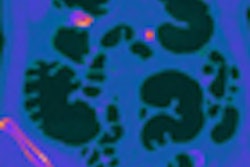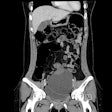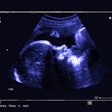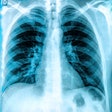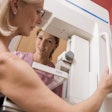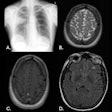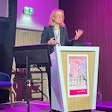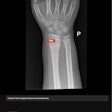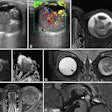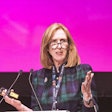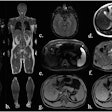
LONDON (Reuters), Apr 7 - It's not hard to find a breast cancer survivor who thinks routine mammograms are a good idea.
Almost any woman who had a cancerous tumor detected in her breast during a regular screening appointment would probably think the scan -- and subsequent surgery, radiotherapy, or chemotherapy treatment to remove the cancer -- saved her life.
But that is not always true and an increasingly heated international debate is raging about whether women are getting the right information on the merits, and risks, of mammograms.
The fear is that overdiagnosis -- when screening picks up tumors that would never have presented a problem -- may mean many women are undergoing unnecessary radical treatment, suffering the physical and psychological impact of a breast cancer diagnosis that would otherwise not have come up.
While some scientists are locked in battle, slinging accusations at each other of misleading data and conflicts of interest, others say the row itself is a signal that it's time for a new and more refined approach to breast cancer screening.
"What really bothers me ... is the poor women who are the subjects of this debate, who must be utterly confused and not know what the hell is going on or what to do," Michael Baum, the doctor who introduced Britain's first breast screening program more than 20 years ago, told Reuters.
"To carry on regardless is no longer acceptable. I'm trying to find a way out of this mess."
Row erupts
Low level argument over the merits of mammograms has bubbled for some years, but a political storm blew up in the United States last year when public health officials questioned whether screening for women in their 40s actually save lives and proposed upping the regular screening age to 50.
Now, in Europe, two recent scientific studies have brought the issue to a head, pitting convinced breast cancer screening supporters against those who say the numbers just don't add up.
A team of Danish scientists published a study showing that breast cancer screening programs of the type run by health services in Europe, the United States, and other rich nations do nothing to reduce death rates from the disease.
A week later, a British team published a study showing a "substantial and significant reduction in breast cancer deaths" due to screening.
The lead researchers on each paper, Stephen Duffy of Queen Mary, University of London, who led the British study, and Peter Gotzsche of the Nordic Cochrane Center, who led the Danish team, told Reuters they suspected the other of having long-held biases on breast cancer screening that skewed their work.
At the heart of the matter is the issue of overdiagnosis. This is when a mammogram picks up something called ductal carcinoma in situ (DCIS), which are cells -- often described as "precancerous" or noninvasive -- that may progress into life-threatening cancer if left untreated.
The problem is there is also the chance they would never progress or cause a problem, but instead leave the woman to live in blissful ignorance and die years later -- but not of breast cancer.
The fear is that regular populationwide screening programs are causing overtreatment of such cancers, ruining women's lives with unnecessary mastectomies or chemotherapy.
Gotzsche's evidence suggests that for every 2,000 women who are screened over 10 years, only one stands to have her life saved by the mammogram program, whereas the risk of getting an unnecessary breast cancer diagnosis is 10 times that.
Duffy's study, meanwhile, found that screening saves two women's lives for everyone who is given unnecessary treatment.
"I have never in science seen such a huge discrepancy, and Stephen Duffy's estimates are simply blatantly wrong," Gotzsche told Reuters when asked about the difference.
For his part, Duffy accuses Gotzsche's team of spending years pursuing research that finds against the merits of breast cancer screening, yet has failed to change opinion.
"Most of the people who work in breast cancer ... are actually pretty happy with screening. That's why we get paper after paper from the Danish Cochrane team, and yet the screening program stays," he said.
When the evidence changes
Yet other experts say the ongoing row exposes the failings of applying a "one-size-fits-all" policy to a complex area of medicine, and the time has come for change.
Baum, an early pioneer of breast screening said he became so sickened by the refusal of health officials to update patient information leaflets with data on potential benefits and harms that he resigned from the program after 10 years.
He now has a proposal for a solution:
"What I'm advocating is that instead of one-size-fits-all, we should think of it in the same way we think of other screening approaches -- we should identify the high-risk groups first."
Baum favors a "triage" system to divide women into high-, middle-, and low-risk groups based on family history and lifestyle factors like alcohol consumption, weight, diet, and exercise.
He says high-risk women -- those with a long family history of breast cancer -- should be offered genetic testing to find out if they have a gene mutation which predisposes them to the disease, while low-risk women should get advice on healthy eating, avoiding alcohol, and minimizing other risk factors.
Screening would then be reserved for those in the middle, where he thinks the benefit-risk balance makes most sense.
"At the beginning I was convinced enough (about breast cancer screening) to actively involve myself in setting it up, but as the numbers change, the mind has to change," said Baum. "This is the whole point of science. As the evidence changes, you must change your mind.
By Kate Kelland
Last Updated: 2010-04-07 12:30:20 -0400 (Reuters Health)
Related Reading
Authors of Nordic mammo study no strangers to controversy, April 6, 2010
Mammography advocates weigh in on Nordic study, March 26, 2010
Breast cancer screens don't save lives: Nordic study, March 25, 2010
Norwegian mammo study claims to find cancer 'spontaneous regression,' November 24, 2008
Scandinavian studies take mammography to task once again, March 3, 2006
Copyright © 2010 Reuters Limited. All rights reserved. Republication or redistribution of Reuters content, including by framing or similar means, is expressly prohibited without the prior written consent of Reuters. Reuters shall not be liable for any errors or delays in the content, or for any actions taken in reliance thereon. Reuters and the Reuters sphere logo are registered trademarks and trademarks of the Reuters group of companies around the world.

